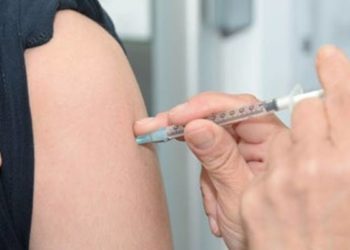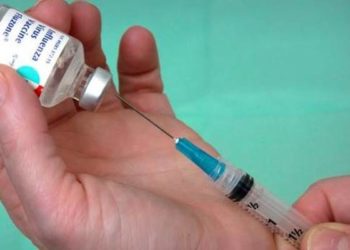New dengue fever vaccine effective in phase 3 trial
1. A recombinant live, attenuated, tetravalent vaccine was effective against dengue fever in children aged 2-14 years in endemic countries in the Asia-Pacific region.
2. The serious adverse event (mainly infections and injuries) rate was approximately 1% within 28 days of vaccination. There was one vaccine-related case of acute disseminated encephalomyelitis.
Evidence Rating Level: 1 (Excellent)
Study Rundown: Almost 400 million people are infected with dengue fever every year with up to 100 million people having symptomatic infections, while nearly 70% of cases occur in the Asia-Pacific region. No vaccines or treatments currently exist to prevent infection. This study assessed a recombinant, live, attenuated, tetravalent dengue vaccine (CYD-TDV), which was well tolerated and immunogenic in previous phase 2 trials in Asia and Latin America. This phase 3 trial tested the efficacy of the dengue vaccine in five countries in the Asia-Pacific region against symptomatic and virologically confirmed dengue fever occurring more than 28 days after the third vaccine injection, regardless of serotype or disease severity. The primary endpoint was vaccine efficacy, this was achieved with efficacy just under 60%. The serious adverse event rate was approximately 1% within 28 days of vaccination. These findings showed that the novel tetravalent vaccine may have the potential to help reduce the incidence of symptomatic infection, thus providing significant public health benefit. The efficacy rate under 60% suggests that it may not provide complete individual protection. Additional benefits may come from herd immunity. With over 10,000 participants, the trial was adequately powered. The observer-masked, placebo-controlled study design also added strength.
This study was funded by Sanofi Pasteur.
Click to read the study, published today in The Lancet
Relevant Reading: Protective efficacy of the recombinant, live-attenuated, CYD tetravalent dengue vaccine in Thai schoolchildren: a randomised, controlled phase 2b trial
In-Depth [randomized controlled trial]: This is phase 3 randomized controlled trial. It was observer-masked, placebo-controlled. 10,275 children ages 2-14 years were randomized (2:1) to receive either vaccine (n=6,851) or placebo (n=3,424). 6,772 (99%) children in the vaccine group and 3,379 (99%) in the placebo group received three injections, and 6,710 (98%) and 3,350 (98%), respectively, were included in the final analysis.
The incidence density of virologically confirmed dengue in children in the control group during the 25-month active surveillance period was 4.7% overall. 595 (6%) children were diagnosed with virologically confirmed dengue, in which 14 (2%) had two episodes (4 in the vaccine group and 10 in the control group). 250 cases of virologically confirmed dengue took place more than 28 days after the third injection. Vaccine efficacy was 56.5% (95% confidence interval, [CI], 43.8-66.4), which met the primary endpoint as the lower bound of the 95% CI was greater than 25%. This was also confirmed in the intention to treat analysis of all dengue cases between months 0 and 25 in participants receiving at least one injection. The efficacy was higher in participants with pre-existing dengue neutralizing antibodies than in those without antibodies. 647 serious adverse events were recorded (402 in the vaccine group and 245 in the control group). 575 participants had one or more serious adverse event. 54 (1%) participants in the vaccine group and 33 (1%) of those in the control group had serious adverse events that happened within 28 days of vaccination. Serious adverse events were consistent with medical disorders in this age group and were mainly infections and injuries.
More from this author: Insulin pumps more effective than multiple daily injections in type II diabetics [OpT2mise trial], Heart attack hospitalization rate in China quadruples from 2001-2011, Vitamin D supplementation does not reduce risk of falls, ¹⁸F-FDG PET brain imaging could predict recovery in vegetative patients, Colchicine safe and effective for recurrent pericarditis [CORP-2 trial]
Image: PD
©2012-2014 2minutemedicine.com. All rights reserved. No works may be reproduced without expressed written consent from 2minutemedicine.com. Disclaimer: We present factual information directly from peer reviewed medical journals. No post should be construed as medical advice and is not intended as such by the authors, editors, staff or by 2minutemedicine.com. PLEASE SEE A HEALTHCARE PROVIDER IN YOUR AREA IF YOU SEEK MEDICAL ADVICE OF ANY SORT.






